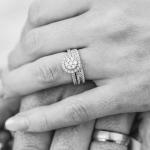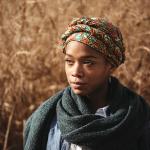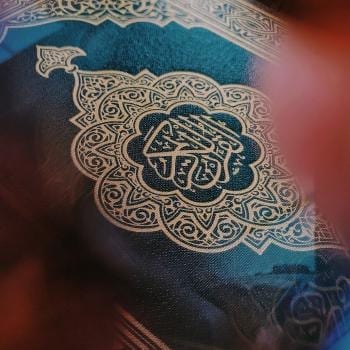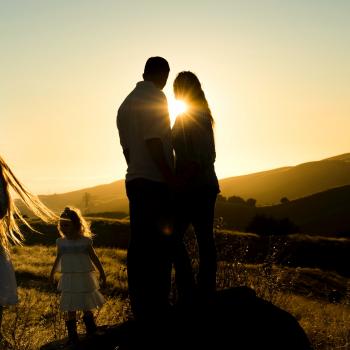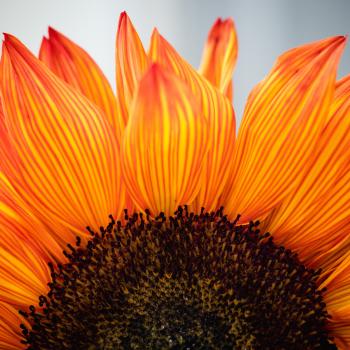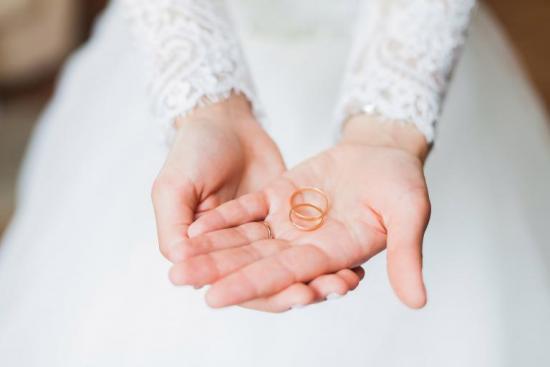
When I was a teenager, my father (who was an ex-marine and educated in the Philippines) met my stepmother, who is Filipino. He brought her home to live with us. She and I worked in the garden, and I got along very well with her. Where I lived, it was basically a White town, and she was the first foreigner that I had met. Her son was taunted at school for being brown.
When I was 16 years old, I was sitting on my front porch on an August afternoon. I was reading a story in a magazine about an English girl who fell in love with an Indian Maharaja, and I was enthralled. I dreamed of an exotic land and prince. My art teacher gave me a book, “Siddhartha” by Herman Hesse. He wrote about very exotic, tropical countries, about the Far East, and it all seemed very spiritual. I would dream about going to India. I read most of his books.
I grew up in a very racist family. My great-grandmother was extremely racist. For some reason, I was spared from such racist thoughts myself. My family was very conservative, and I was very liberal. I had an uncle who only liked White Catholics from our hometown. I never got along with him.
Many years passed, and while in my third year of art school, I met my Bengali husband. He fed me tea and oranges. He was a post-graduate engineering student. I was dressed very bohemian, and he was dressed very conservatively. We talked about holography applied to art and engineering, which he was studying. He offered to show me his holograms.
It did not matter that my husband was from a different culture or race. He was the same as me. I just wanted to marry him.
Three days later, he came to my school, and I was 45 minutes late. My friend waited with him. He took me and showed me his hologram in his laboratory, and showed me every painting at his school, and took me for fish and chips. There was something about this gentle, simple man who walked like a mature man at his young age. I looked into the brown pools of his eyes, and they looked so familiar, and I knew I would be looking at these eyes the rest of my life. I told him that he would be my husband. He did not think I was crazy and just smiled at me. We have been inseparable ever since, and this was 38 years ago. I fell in love.
It did not matter that my husband was from a different culture or race. He was the same as me. I just wanted to marry him. I told my friend right away that I would wear saris and that I would go to Bangladesh. Presently, I have been to Bangladesh 16 times.
My father-in-law didn’t approve. He was very afraid of the high divorce rate, I was not Muslim, and could not speak the language. He was afraid that I went to bars and lived a promiscuous life style. It took a year for him to agree. It was a very difficult year. He agreed and named me Bushra, and I converted to Islam.
I married my husband. I had a simple Bengali Muslim wedding. I wore a green sari that my father-in-law sent me. I went to Bengali parties. At first no one talked to me, and I would end up sitting alone, and they spoke Bengali, which I did not understand. I felt left out. I wanted to be accepted by them and to make my husband happy. I soon started wearing Bengali clothes like salwar kameez and sari. I learned to cook curry for my husband because he did not like American food.
I was competing with them, to prove something to them – perhaps that I was not like other supposedly American women.
I wanted my children to be brought up in Bengali Muslim culture. My children looked like my husband. I began dressing them like other Bengali Indian children. I took them to the same activities. I would dream about them becoming engineers and doctors like the other Bengali children. I was competing with them, to prove something to them – perhaps that I was not like other supposedly American women. Many of them eventually became my friend. I made also a promise to my father-in-law that I would raise my children this way. I kept my promise.
It was a big adjustment for me, and I had to gain the women’s trust in the Bengali community. A lot of American women gave up, because it was too hard. For me, it was a challenge. Many times I was sitting alone. The fact that I was Muslim impressed them. I was always asked if I prayed five times a day, cooked Bengali food, and whether I sent my children to Islamic school. Islamically, too it was hard to be accepted by other Muslim foreign-born women at first. My father-in-law taught me how to pray, and yet in the mosque, I forgot how many rakats at times, and one time someone yelled at me that I did not know how to pray.
It was harder for women who didn’t convert to Islam, who remained Christian. In the mosque they did not have classes to teach converts how to be Muslim, like Christian churches. I learned myself, by reading the Koran, and other books on Islam. It took a long time to be accepted. I just kept trying. I did this to make my husband happy, and to keep my promise to my father-in-law. I kept my promise. I became a White Bengali Muslima who seemed to adjust to the culture. He expected me to be a good housewife and mother, and to forget about artwork.
In-laws were a problem for an American-born woman. They wanted to see their son marry one of their own, especially if the woman remained Christian. I did not have this problem because my parents-in-law grew to love me.
My children, despite looking Bengali, assimilated into American culture, because it was too hard for them to adjust to being Bengali when they had a White mother.
To me, my husband was the same as I was. The only time he spoke Bengali was on the phone and at parties. He introduced me to Rabindranath Tagore; he loves his music. He was a bad teacher, though. He didn’t teach me or his children Bengali. And I was a bad student, who did not do well with foreign languages.
I did not realize how difficult it was for my children, who felt they were mixed and did not belong to either culture. They did not fit in with other Bengali children. Some American children were very cruel and made fun of their dark skin and bullied them. When they were in pre-school, they didn’t see the difference between my husband and I. It was not until they entered public school that children asked why their mother was white and their father was brown. They were told at the mosque that I could not be a good Muslim, because I was a White American. At the time, I was not aware that this was said to them. I tried very hard to make them Bengali Muslim children, and they hid this from me. My children, despite looking Bengali, assimilated into American culture, because it was too hard for them to adjust to being Bengali when they had a White mother.
I, too, found it very difficult. I felt I was losing my identity. After my father’s death I began painting again, in order to survive the grief. I could still do the same things, but I had to follow my own path. It meant me being an artist again. It is very hard to cook and clean and to be an artist at the same time.
Many of the children of these Bengali families did study to become doctors and engineers, fulfilling their parents’ dreams. But they also struggled. They secretly didn’t accept the way they were brought up and eventually became Americanized. But they deceived their parents, so as to not to break their hearts or be disowned. Many of the children were arranged into marriages. Women were becoming educated, and did not conform. The marriages did not work out.
I am still a White Bengali Muslim woman who has been in long-term marriage to a wonderful man. Life has many twists and turns and you do not know how it is going to turn out. It always ends up the way that God has ordained.
9/11 made a big impression on these children, as well as mosque politics, Imams who were not relevant to this culture, and badly run Sunday schools. Many walked away and became agnostic. Many also became very devout Muslims.
As for my children, I did not arrange their marriage, and let them choose what they wanted to be. One is a journalist, another other does Malaria research and travels to different cultures and is married to a particle physicist. My youngest is a businessman. None of them fit the Bengali criteria, but I am proud of my children. I just want them to be happy.
I am still a White Bengali Muslim woman who has been in long-term marriage to a wonderful man. Life has many twists and turns and you do not know how it is going to turn out. It always ends up the way that God has ordained. We do not always know the outcome. Except God wills how it should be.
Stephenie Bushra Khan is a converted Muslim, a poet, and local artist in Temecula, California. She is originally from Winchendon, Massachusetts.
Follow Mostly Muslim on Facebook HERE.
Want your voice to be heard? JOIN OUR TEAM or send your guest submission to [email protected]! Visit the “Contribute to MM” page for more details.

